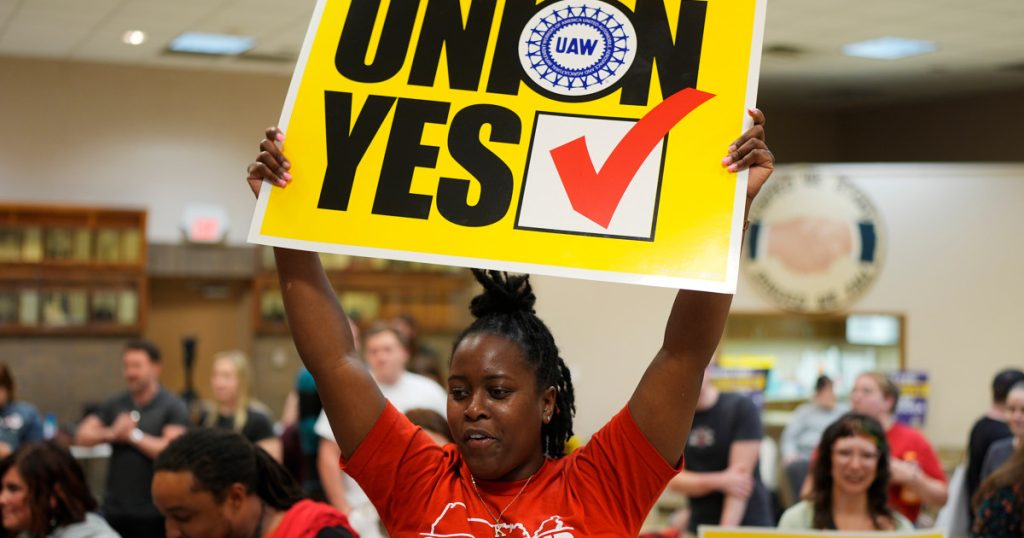Workers at a Mercedes-Benz plant in Alabama are currently voting on whether to join the United Auto Workers union. This decision is significant as it represents a test of the union’s ability to expand its presence in the traditionally anti-union American South. A victory for the union at the Mercedes plant following a successful campaign at a Volkswagen factory in Tennessee would mark a pivotal moment for the UAW as it aims to organize numerous automakers across the country.
The organizing campaign at the Mercedes plant has been marked by contention, with the company actively urging workers to vote against unionization through various means such as fliers and outside labor firms. Despite these efforts, Mercedes has denied allegations of impeding union organizing in Alabama and claims to respect employees’ right to unionize. The 5,200 employees at the assembly plant and nearby battery factory are expected to cast their ballots this week, with final results anticipated on Friday.
UAW President Shawn Fain has been strategically planning for over a year to attract non-union auto workers, beginning with securing new labor contracts in Detroit. Fain led the union through its first simultaneous strike against major automakers, resulting in significant agreements such as a 25% wage increase. This success in Detroit was crucial for gaining support among workers in the South, as seen in discussions at the Mercedes plant where Detroit contracts were a key talking point in favor of the UAW.
Despite encountering initial challenges in gathering support for unionization at the Mercedes plant, there has been a substantial shift with a majority of workers now in favor of joining the UAW. The historically anti-union sentiment in the American South poses a significant challenge, given the lack of union activity in states like Alabama. Mercedes has waged a more aggressive anti-union campaign than seen at VW, holding meetings led by company executives and outside firms to dissuade workers from joining the UAW.
The UAW’s recent agreement on a new labor contract for Daimler Truck employees in the South, as well as state governments’ strong resistance to unionizing, highlight the broader context for the current organizing efforts at the Mercedes plant. While some workers feel encouraged by recent changes within the company, such as the replacement of the U.S. business president, others are concerned that bringing in a union could disrupt the positive momentum and strain relationships between workers and management. The outcome of the union vote at the Mercedes plant will have far-reaching implications for labor relations in the American South.


